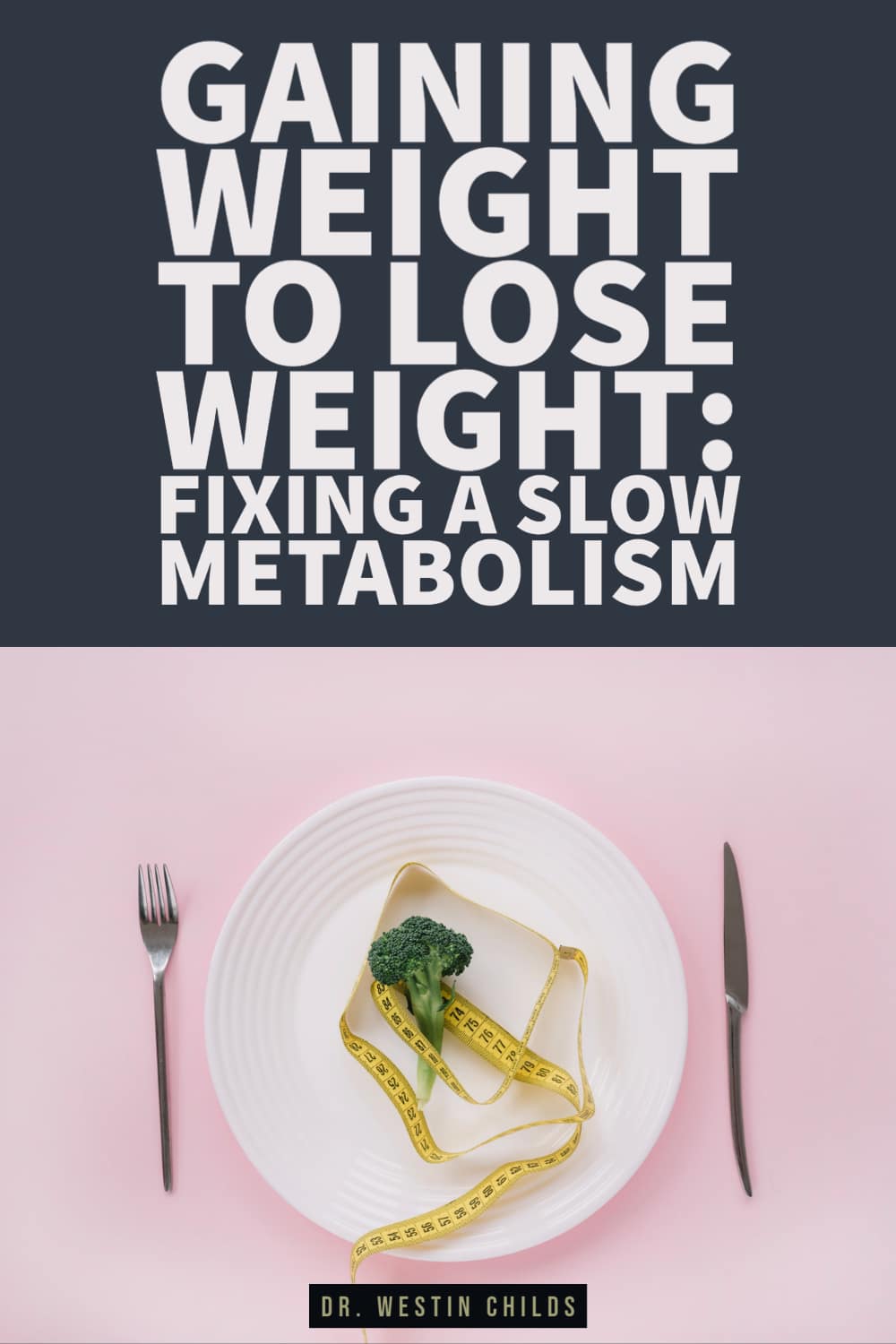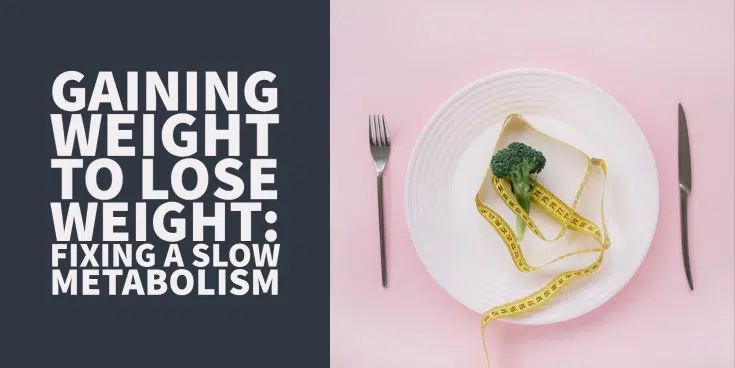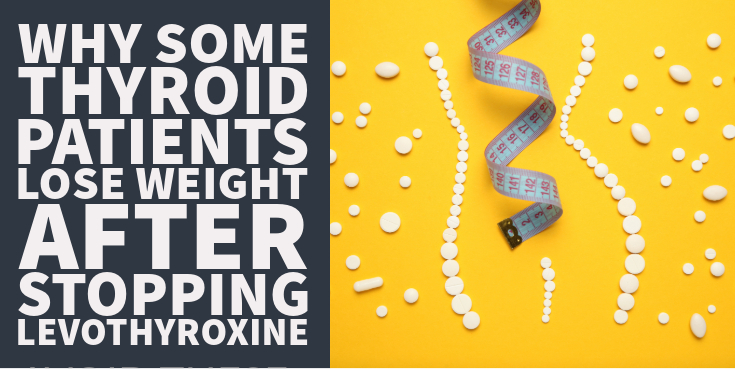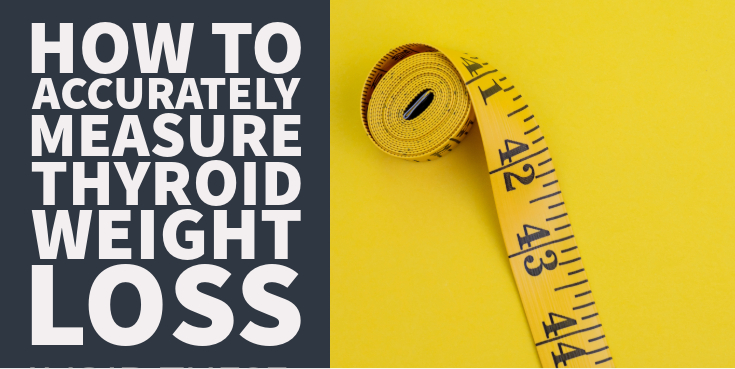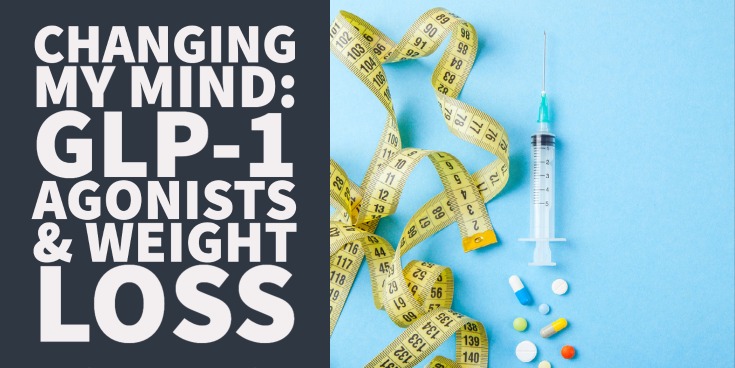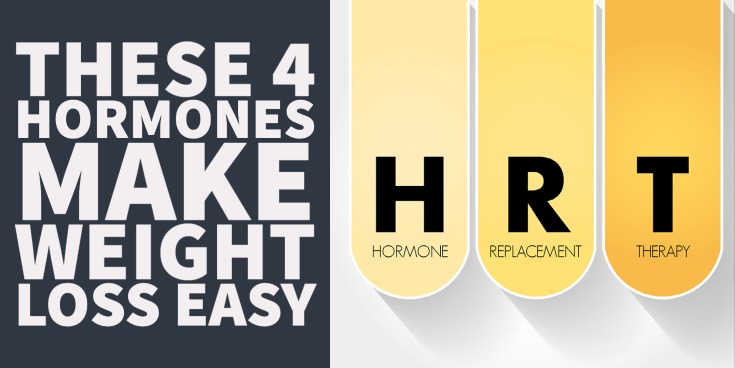This is going to sound crazy but there are certainly some of you out there who will ultimately end up needing to gain weight before you lose weight.
And the way that you should do this is by increasing the number of calories that you consume.
This information does NOT apply to everyone but it may apply to you, especially if you are someone who has been chronically reducing your calories in order to maintain a specific weight.
Let’s break down why this matters and if it applies to your specific situation.
*Note: the information here primarily applies to people with severe metabolic damage from yo-yo dieting, eating disorders, or severe or undertreated thyroid conditions.
The Connection Between your Weight and Your Metabolism
Despite weight being a massive problem for many people, we still don’t fully understand all of the factors involved in both weight gain and weight loss.
No one would dispute that factors such as calories, hormones, and metabolism all play an important role in regulating weight.
But we don’t quite understand how all of these factors play together and which factor is most important.
I would submit to you, based on my evaluation of the research and my own personal experience, that metabolism is probably one of the most important elements in understanding why we gain weight and how to lose it.
Calories and hormones fit into the equation because they both manipulate metabolism, but metabolism sits front and center in terms of how it influences your weight.
And studies show that it is incredibly important.
We know, for instance, that having a normal metabolism is a strong predictor for maintaining a normal healthy weight (1) and for also keeping weight off once you lose it.
The question really becomes what factors negatively (and positively) impact your metabolism and how can we take advantage of these factors to promote sustained weight loss.
Calorie Restriction Leads to Metabolic Damage
Isn’t cutting calories the way that you lose weight?
Well, yes and no.
The traditional way that we think about losing weight has less to do with how many calories you consume and more to do with how the calories you consume interact with the hormones in your body.
But, there is no question that reducing your calories will result in some weight loss.
But this weight loss is typically only temporary and does not last.
“Although they are initially successful in producing weight loss, such lifestyle intervention strategies are generally unsuccessful in achieving long-term weight maintenance, with the vast majority of obese patients regaining their lost weight during followup.”
– Mechanism of Weight Regain following weight loss (2)
And the more times that you “count” or reduce your calories the more damage you will do (3), the longer it takes to lose the same amount of weight that you lose before, and the more aggressive you will have to be with counting your calories.
Let’s say that you are someone who is 20 pounds overweight and you want to lose that weight.
You jump on an aggressive diet such as the hCG diet.
You lose 20 pounds by cutting your calories to 500 per day over a 60-day period.
You keep that weight off for 6-9 months but you notice that it eventually all comes back.
At this time, with all of your weight back, you want to try and lose it again.
So you do what worked before, the same hCG diet, only this time it takes more than 60 days, and instead of losing all of your weight you only lose 5-10 pounds.
This cycle typically repeats itself and the people who do it damage their metabolism more each and every time.
Ultimately, if you continue, you will get to a point where you will be consuming 1,000 calories per day just to maintain your weight.
And if you fit into this category then this article is definitely for you.
The question is, why does this happen?
Most research points to a condition known as metabolic adaptation (4).
Metabolic adaptation is what your body does when you reduce the calories that you consume.
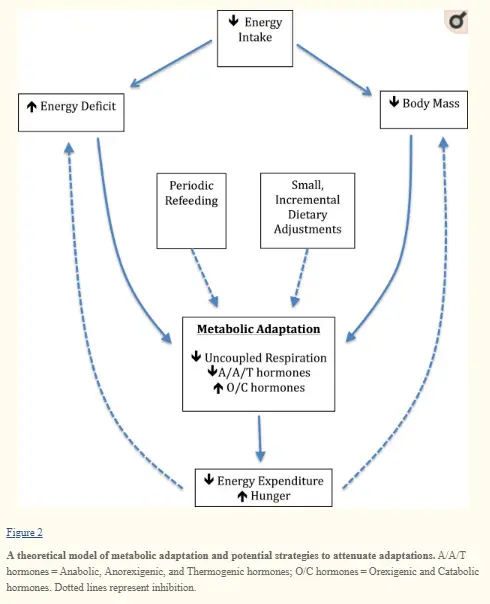
You can think of your metabolism like a thermostat which is set by the brain.
If that thermostat is set to 2,000 calories by your brain (mediated through hormones such as leptin and thyroid hormone) then you will burn that amount each day.
But when you reduce your calories for an extended period of time, the research points to around 14-21 days, that thermostat gets pushed downward.
So, instead of burning 2,000 calories per day, your body will only burn 1,600.
This process takes a few weeks to kick in which is why calorie-restricted diets tend to work initially.
But the problem comes when you try to get your brain to reset the thermostat and push back up the number of calories that you are burning.
Your brain doesn’t move very quickly so the thermostat stays low, 1,600 in this hypothetical example.
This means once you start consuming a regular amount of calories, say 2,000 calories, you will gain all of the weight that you previously lost.
Make sense?
And we know, from real-world examples such as the Biggest Loser, that once your brain pushes down your metabolic thermostat, it can stay low for years (studies suggest that it stays low for at least 5-6 years (5)).
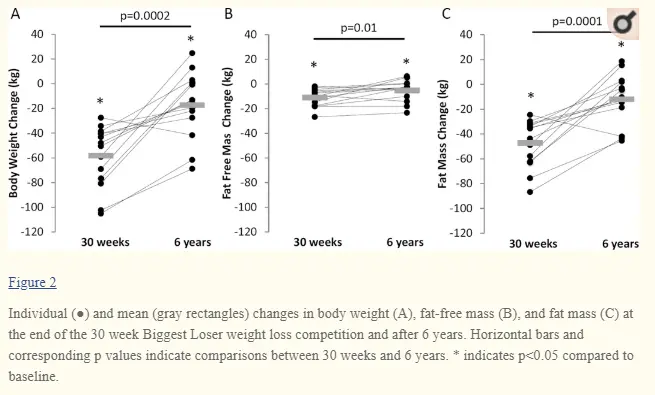
The question really becomes, what can you do to push that thermostat back up?
If you can increase your metabolism back up to normal then you can actually start to lose weight.
Increasing your Calories Improves your Metabolism
One major problem when dealing with metabolism is that we really only have a handful of therapies that target metabolism.
If you take a look at weight loss medications, which you can view as a proxy for how doctors look at weight loss, you will find that most of them target your appetite in some way.
Most of these medications, including medications such as phentermine, make metabolism worse by further suppressing calorie reduction (6) leading to the cascade mentioned above.
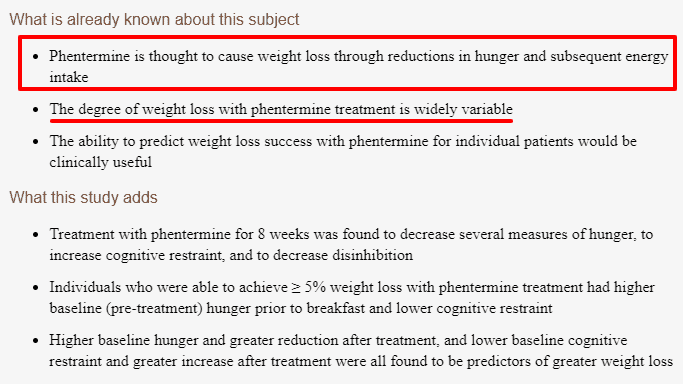
This doesn’t mean that these medications are bad, in fact, it’s quite the opposite, but it does mean that they should be used appropriately and in the right setting.
Of all the weight loss medications available, only a few target the hormone pathways which are responsible for regulating your metabolism.
And these medications work by altering hormone levels in an attempt to help reset how your brain views fat concentration in your body.
But is there another way to accomplish the same goal, without taking medications? Or even in conjunction with the right medications?
And the answer is yes.
Diet and the number of calories that you consume heavily influence your metabolism.
In fact, we know that your brain attempts to closely match your metabolism to the number of calories (7) that you consume.
It does this by regulating certain hormones such as leptin (8), ghrelin (9), thyroid hormone, and others.
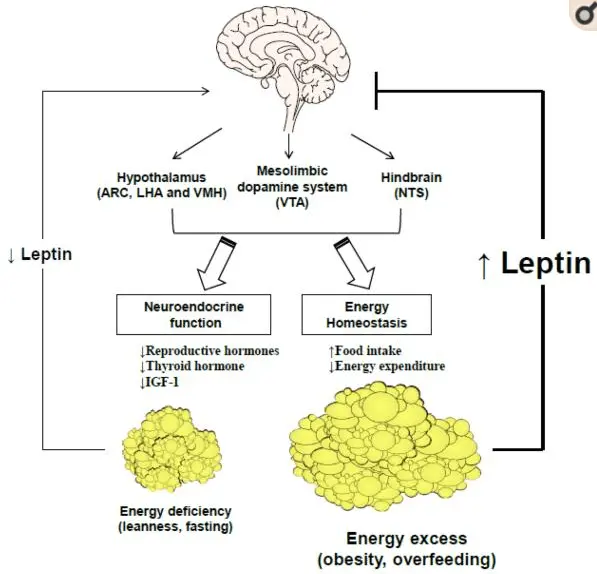
This matching of metabolism to your food intake is well known and is the reason that you can temporarily consume an extra 3,500 calories in one day and not gain an extra pound of fat mass (note this only works if your metabolism is working normally, do not try this experiment if you have a damaged metabolism!).
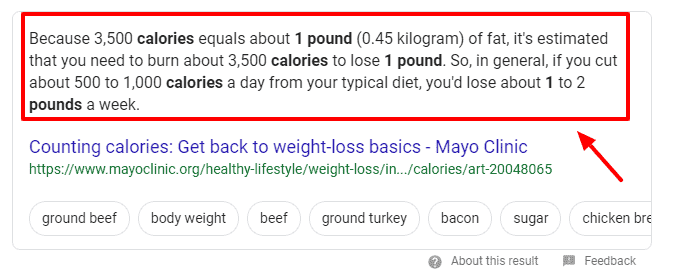
If only it were THIS easy!
Your body can temporarily handle either a large influx of calories or a deficit of calories over the course of a few days.
Just think about it:
What happens when you are sick? You certainly aren’t eating a normal amount (10).
What happens when you go on vacation or eat over the holidays? You certainly aren’t eating a normal amount.
Your body is able to handle these small variations but once it extends beyond some time point (usually 2-3 weeks) then problems start to arise.
It just isn’t realistic to assume that your metabolism is constant and that you are consciously matching the number of calories that you consume to some arbitrary number such as 2,000.
This occurs subconsciously, without you thinking about it, unless the hormones we mentioned become unbalanced and start to trick your brain with food cravings and so on.
And these imbalances do start to kick in once you suppress metabolic function through consistent calorie restriction.
But, you can offset this problem by increasing your calories back to where they should be if you had a normal and healthy metabolism.
As you increase the amount that you consume, your brain will start to push that metabolism back up to where it was before the drop.
And this is key to maintaining a healthy metabolism.
Gaining Weight to Lose Weight
If you are someone with severe metabolic adaptation, meaning your metabolism has been severely damaged through decades of repeated yo-yo dieting, then this means you will probably have to gain weight to lose weight later on.
I understand that this is a very difficult pill to swallow and if you fit into this situation you are probably someone who is very sensitive to your weight, to begin with.
I do actually understand the paradox that exists here but I am suggesting that, at least currently, there are very few ways to fix the problem.
One of those ways has to do with increasing the calories that you consume.
This ultimately leads to weight gain, initially, but it’s necessary for long-term and sustained weight loss.
And isn’t that what you want?
You don’t want to temporarily lose another 5-10 pounds with a fad diet.

What you really want (or at least what you should want) is to lose weight and keep it off for good.
And after you lose it be confident that it won’t come back despite occasional indulgences (moderation in all things, though!).
Let’s break down how increasing calories increases your weight but helps you long-term:
Once you increase your calories you will start to gain some weight back.
The amount of weight that you gain will be proportional to the metabolic damage that exists in your body.
Let’s use an example to help illustrate this point:
Imagine that you are someone who burns about 1,000 calories per day due to severe dieting over the years.
You must consume that 1,000 calories each day in order to maintain your weight.
But even consuming 1,000 calories doesn’t allow for any weight loss, it just keeps you at your current weight which is probably at least 20 pounds over your ideal weight.
For this example, let’s assume that you currently weigh around 170 pounds and your target weight is around 140.
If you increase your calories by about 400 per day up to 1,400 per day you can probably expect to gain 5-10 pounds from this small adjustment.
This will put your new weight around 175-180 pounds.
And yes, you will be temporarily taking a step backward, but it puts you in a much better position for long-term weight loss.
Even though you have gained some weight your metabolism should start to reset at this new level, probably around 1,400 calories per day.
Once you get to this point you should notice an improvement in thyroid function, either a rise or fall in leptin (depending on your base level and sensitivity), and an improvement in symptoms such as hair fall, fatigue, and so on.
Once you get to this point you can now address those hormone imbalances which affect your weight and you should start to see your weight drop back down.
You can then repeat this process while closely monitoring your hormones, diet, and weight until you have restored your metabolism to what it was previously.
Should you do it?
You can imagine that this process is somewhat of a balancing act.
And you can probably also imagine why many people either don’t do it or aren’t even aware that this therapy exists.
Why?
Because it just doesn’t make intuitive sense that in order to lose weight you must gain it, but once you understand the physiology it becomes apparent why it is necessary for some people.
The question is:
Should you do it?
And to that, I would suggest that you proceed with caution, especially if you are someone who fits the patient profile and examples I’ve illustrated above.
It’s not that the therapy is ineffective or anything like that, but there are many variables and hormones that should be monitored throughout the process.
In addition, the process can be quite confusing unless you have some experience doing it.
The process of gaining some weight to lose it later can also be very frustrating as a patient, especially if you aren’t confident you are doing it correctly.
I can confirm, however, that I have successfully done this with many patients successfully and have helped them improve their metabolism and ultimately lose weight.
Even when done correctly the process can still take many months, however, so you should be aware of that.
I find that this therapy is also particularly effective for those patients with difficult-to-treat patient populations such as those with a history of anorexia/bulimia or other eating disorders.
I will also briefly point out that some procedures have shown promise in restoring metabolic function.
Procedures that fit into this category include forced fasted states from bariatric surgery.
I’m not recommending that you get this procedure done but I am pointing out that some studies show that it can restore metabolic function (11).
I personally believe that there are more effective ways of restoring your metabolism without permanently (or semi-permanently) altering your gastrointestinal anatomy.
Does this information apply to you?
I want to be very clear that this information does not apply to everyone who is overweight.
I am not trying to suggest that eating more calories is the way to lose weight.
I’m suggesting that eating more calories may be a strategy necessary to improve metabolic function in certain people.
This applies specifically to people who are suffering from weight gain and who also have metabolic damage/metabolic adaptation.
But you have to remember that there are PLENTY of reasons for weight gain outside of metabolic adaptation.
Inflammation (12), hypothyroidism, illness, medications (13), cortisol abnormalities, lack of sleep (14), poor exercise, poor diet, and so on can all lead to weight gain which does not necessarily compromise your metabolic function.
The treatment for obesity in these situations is to address the underlying cause.
If your thyroid is dysfunctional then you should receive treatment with thyroid hormone.
If inflammation is leading to obesity then you should consume an anti-inflammatory diet (15) and take anti-inflammatory supplements.
If you are eating an unhealthy diet then you should eat a healthy diet.
And so on.
It’s possible to have both metabolic damage and obesity related to these conditions, but just being overweight does not guarantee that you have metabolic damage.
In addition, the severity of metabolic damage that exists in your body is also important.
Minor metabolic damage may not be causing you significant harm or difficulty with weight loss.
But the more extreme the damage, the more likely you are to need to address it for long-lasting weight loss.
Conclusion
I’m not suggesting that everyone who needs to lose weight has metabolic damage.
I’m also not suggesting that consuming more calories is always the answer to weight loss, far from it.
Instead, I’m suggesting that there are some people, who suffer from severe metabolic damage, who may benefit from the strategies listed here.
Now I want to hear from you:
Are you someone who suffers from metabolic damage?
Do you suspect that your metabolism is lower than it should be?
Are you maintaining your weight, without losing weight, by reducing your calories every day?
If so, what therapies have you tried? Which has worked for you?
Leave your questions or comments below!
